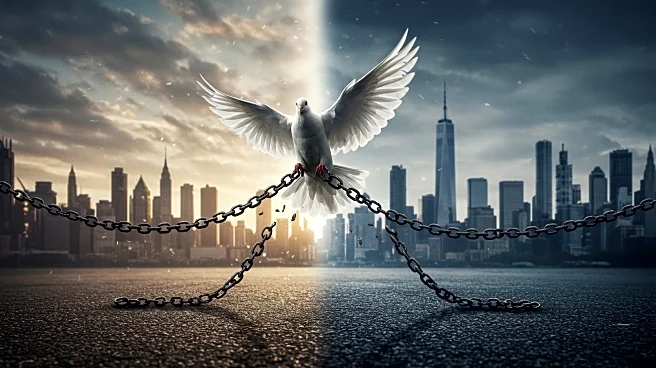What's Happening?
In Israel, large-scale protests erupted as demonstrators called for a deal to release hostages held in Gaza. The protests, organized by families of the hostages, saw participation from hundreds of thousands across the country. The demonstrations reflect growing frustration with the Israeli government's handling of the conflict and its plans for a new military offensive in Gaza. Protesters blocked roads and lit bonfires, with some carrying images of malnourished Palestinian children to highlight the humanitarian crisis in Gaza.
Why It's Important?
The protests underscore the domestic pressure on the Israeli government to address the humanitarian situation in Gaza and negotiate a resolution to the conflict. The demonstrations could influence Israeli politics, potentially affecting Prime Minister Netanyahu's coalition and policy decisions. The humanitarian crisis in Gaza, with high levels of malnutrition and displacement, is drawing international concern and could impact Israel's global standing.
What's Next?
The Israeli government may face increased calls for a ceasefire and negotiations to release hostages. The potential for further military action in Gaza could lead to more protests and international criticism. The situation remains tense, with the possibility of further escalations in both military and public responses.
Beyond the Headlines
The protests and the humanitarian crisis in Gaza raise questions about the ethical implications of military actions and the treatment of civilians. The international community may increase pressure on Israel for accountability and humanitarian intervention. The conflict also highlights broader regional tensions, including the involvement of Iran-backed groups and other regional powers.










